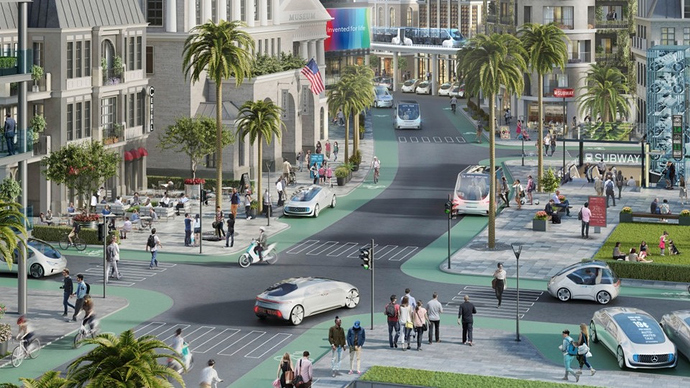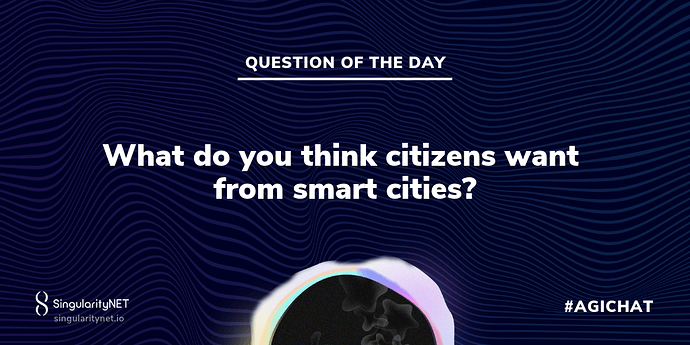While the definition of a smart city is still evolving, but currently it can be thought of as a city that can leverage information and communication technologies to enhance public services, citizen health and well-being and sustainability.
Smart cities leverage connected technologies and bring many benefits, let’s examine a few of them?
Data-driven autonomous decision making
Advancements in connected devices that have access to ‘big data’ allow smart cities to access information that’s on a level not before realised. Data analytic strategies will enable the public sector to access and analyze a huge volume of real-time information, gaining far greater levels of understanding than currently possible. This will lead to an exponential growth in service level achievement and citizen satisfaction.
Enhanced citizen and government engagement
Expanding upon the current digitisation of our public services such as digital local government gateways will make smart cities afar more attractive place for people to live and promote a connected citizen experience.
Free easily accessible government data available to all will lead to an explosion of increased services levels from vendors, holographic interactive maps, city wide performance dashboards, Blockchain levels of transparency into city budgeting, live-streamed interconnected city media, all congeal together to form the emergent state of a city being ‘smart’ and creating a closer bond with the citizens that populate them.
Safer communities
Taking advantage of technological advances such as smart traffic control systems that can use license plate recognition, violence detectors, live interconnected crime prevention centres, next-gen emergency service response will create a zero or near zero crime rates.
Reduced environmental footprint
With the rise of smart cities and the increased consumption that comes with them, the cities of the future will employ a number of strategies to cope and reduce the negative effects on the environment. Energy efficient buildings, atmospheric air sensors, and renewable energy sources created within the city itself will provide these smart cities with the tools needed to shrink their ecological impact while becoming self-sustaining.
Improved transportation
Smart public transportation systems are expected to rise exponentially over the next five years, interconnected transportation systems will drastically enhance efficiencies throughout a city.
A cities transportation system could be considered the arteries and veins of the city and with the implementation of technologies such as intelligent traffic control systems that can optimize traffic flow, relieving congestion during peak travel times and allow emergency services to navigate unabated will have a massive effect on the efficiency of the city itself.
The number of autonomous vehicles on our roads is sset to expload, and as this technology becomes mainstream there will be no need of traffic signals or road markings at all as all the trafic flow can be controlled by smart traffic control systems.
Increased digital equity
Smart city technology has the ability to create a stable environment for citizens who all have access to high-speed internet services important smart technologies should be affordable and accessible for all citizens. We already have an abundance of free public Wi-Fi hotspots strategically placed throughout a city, but in the city of the future internet will be omnipresent and free to all residents.
Economic development opportunities
Investment in smart city technology means massive expansion in citywide and indeed national GDP growth. Opportunities for companies of all sizes to team up with local governments to invest in smart city infrastructure and initiatives.
Increased efficiency of public utilities
With a limited supply of natural resources available to meet human demand coupled with a population growth of people wishing to live within urban environments, smart technologies are provide the tools needed to effectively conserve and reduce consumption of vital resources of water and electricity while moving us away from oil and gas reliance. Smart sensors and utility grids will allow quick identification of any leaks or over usage, enabling fast repairs to any damaged pipework and reassign power.
Improved infrastructure
Ageing transportation infrastructure is a major cost to maintain and repair. Smart predictive analytic technologies can identify areas that need to be fixed before there is an infrastructure failure.
These smart interconnected technologies can communicate and transmit data showing any adverse structural changes in buildings and report back the need for inspections or maintenance. This usage of smart technology represents a massive opportunity for cities to save huge amounts of money and resources not to mention saving lives.
Increased employment engagement
Deploying smart and autonomous technologies will increase companies ability to understand what their customers really want and react in real time. It will also reduce the manual tasks workers currently face every day affording more time citizens can dedicate to more worthwhile persutes such as spending time with their families, education, sport and leisure time.
We would love to know ‘What do you think citizens want from smart cities?’
#AGICHAT #futurism #artificialintelligence #debate #singularitynet #emergingtechnologies #futureofcities #decentralisation #dao #smartcities


